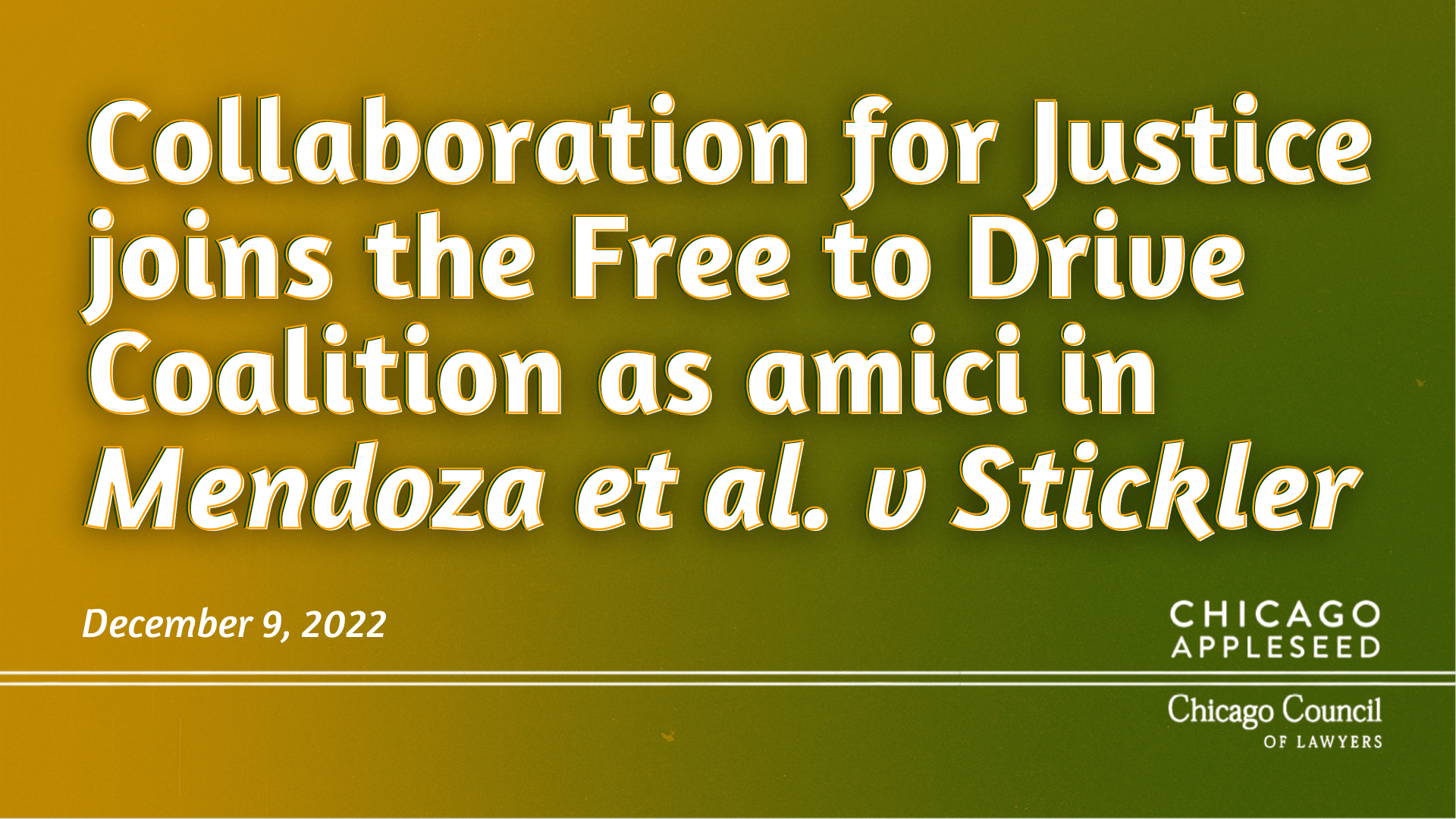The Collaboration for Justice Joins the Free to Drive Coalition as Amici in Mendoza et al. v Stickler
The Civil Rights Corps and the National Center for Law and Economic Justice have filed a brief on behalf of Free to Drive Coalition members in support of the plaintiffs in Mendoza et al. v Stickler. Chicago Appleseed and Chicago Council of Lawyers (the Collaboration for Justice) have joined as amici to the brief as a member of the coalition.
The Free to Drive Coalition includes more than 100 ideologically diverse organizations nationwide and seeks to end driving restrictions for any reason not related to public safety. The coalition supports the elimination of restrictions on driving—including suspensions, revocations, or limitations on renewal of driver’s licenses or registration—to coerce debt payment or to punish people for missing a court appearance. The coalition and its members recognize that such restrictions are counterproductive and harm millions, particularly the poorest people in our communities.
Mendoza was filed by the Oregon Law Center questioning Oregon’s policy of suspending the driver’s licenses of people who cannot afford to pay fines and fees for traffic violations. The plaintiffs in Mendoza challenged the constitutionality of Oregon’s system of suspending the driver’s licenses of persons who fail to pay the fines imposed on them in connection with traffic violations, without an inquiry into ability to pay, the case was dismissed by the District Court for failure to state a claim upon which relief could be granted. A few weeks ago, the Ninth Circuit affirmed the district court’s dismissal of the case in a 2-1 split decision, and plaintiffs are now filing a petition for rehearing en banc, arguing that rehearing is necessary to ensure uniformity in court rulings.
The Free to Drive Coalition’s brief focuses on how the policies of driver’s license suspension for non-safety-related violations is counterproductive to its purpose of debt-collection and of ensuring people appear in court as ordered and is a significant restriction on liberty that is not rationally related to any legitimate state interest. The brief additionally argues against the harms inherent in debt-based driver’s license suspensions from job loss to transportation-based barriers to school attendance, healthcare, and to increased incarceration risk for persons with no alternate means of transportation. Because debt-based license suspensions are economically harmful, undermine public health and safety, and appear to hinder revenue collection, they cannot be legitimately connected to the state’s interest.
Chicago Appleseed and the Chicago Council of Lawyers have long advocated in support of streamlining and eliminating fines and fees within courts because of the disproportionate impact on self-represented and low income litigants. In working to reform court fines and fees, we have opposed driver’s license suspension sanctions for unpaid fees as these disproportionately impact self-represented litigants and have no meaningful benefit for collection. Our ultimate goal is to dismantle structures that predicate meaningful access to courts on access to wealth.

